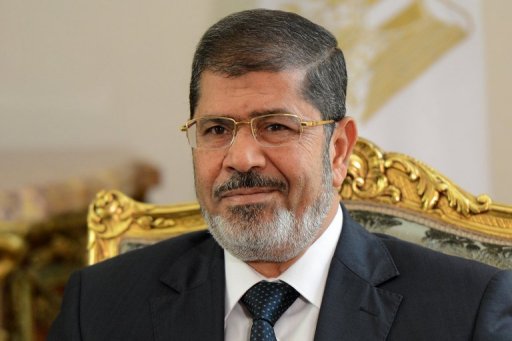
Late on Saturday night, President Mohamed Morsi rescinded his controversial November decree, replacing it with a new one. Like its predecessor, the new constitutional decree is immune from judicial appeal. It states that if the constitutional draft does not pass, a new constituent assembly will be elected within three months, and will be given a six month period to complete its work. The decree also stipulates that the new constituent assembly will be elected, rather than appointed. With this decree, Morsi has also taken the postponement of the constitutional referendum off the table, stating that it will take place as scheduled on December 15.
The new decree repeals the controversial Article 2 which placed Morsi’s decisions beyond judicial oversight. It does, however, maintain the article that calls for the reopening of trials related to protester killings. Decisions achieved by the November decree – such as appointing a new Public Prosecutor – will also be maintained.
The announcement comes in the wake of talk of an impending presidential decree that will grant Egypt’s military the right to detain and arrest civilians – essentially reenacting martial law in Egypt until parliamentary elections are completed. The State Information Service statement read: "Armed Forces officers and non-commissioned officers assigned to maintain security and protect vital state institutions in designated areas will be granted powers of arrest and detention and all other legally defined powers of police officers."
Talk of the decree was also accompanied by a military statement. After several months far from the limelight, the Egyptian army broke its silence issuing an ominous statement, warning of a "dark tunnel that will result in catastrophe" if the sparring political factions are unable to come to a consensus through dialogue. The Muslim Brotherhood welcomed the statement, with one of the organization’s members describing it as "balanced." It remains unclear if Morsi rescinding the decree came with a certain degree of pressure from the military.
It is more likely that Morsi already got the most mileage out of the decree that he needed: He rid himself of a Mubarak stalwart, replacing Egypt’s public prosecutor Abdel Meguid Mahmoud with Talaat Ibrahim. He also guaranteed the Constituent Assembly was able to finish its work. While the Shura Council’s immunity appeared to be the only reason Morsi was hanging on to the decree, the elected body could easily be sacrificed in the face of safeguarding a constitutional draft that has been met with fierce opposition.
Speaking on Egyptian satellite channel ONTV, Esraa Abdel Fattah, an activist and founding member of the Dostour Party, accused Morsi of postponing the referendum abroad to lure the opposition into dialogue, only to reveal that it would take place as scheduled. Statements made by the Ministry of Foreign Affairs also revealed that embassies abroad were simply not prepared for the referendum, giving Morsi the perfect opportunity to offer the illusion of an olive branch.
While on the surface, the decree can be seen as a compromise on the part of the president, in reality it does very little to change matters, and will likely be rejected. It could assuage a large segment of the judiciary. Article 2 served as a driving force behind a nationwide judges’ strike and the decision to boycott the referendum. With that article repealed, the Judges Club has stated that it will not make a unilateral decision, and rather will hold a meeting on Monday to decide whether or not to back down on calls for the boycott. Members of the opposition, however, are continuing to call for the referendum to be postponed, describing Morsi’s latest move as "meaningless." While not said by Morsi himself, before the new decree was announced, both Prime Minister Hesham Qandil and Justice Minister Ahmed Mekki made statements implying that the president would be willing to postpone the referendum.
The National Salvation Front’s original demands called not only for the rescinding of Morsi’s decree, but also called for the scrapping of the referendum and the formation of a new constituent assembly. While the president appears to have met the opposition halfway, not only rescinding the decree but promising to form a new constituent assembly in the event that the draft does not pass – he has likely secured the existence of a highly flawed constitution. In a country where, historically, the ‘yes’ vote always wins, particularly when the ‘yes’ vote mobilizes its voters on the basis of religion, there will be no need for a new constituent assembly.
History has continued to repeat itself over the past two years in Egypt, and it looks as though it will continue to do just that, with a secular opposition rebuking the offers made by the government, while that government continues to take steps giving it the appearance of compromise and dialogue – when in reality – it is simply barreling down its intended path.
Photo: AFP
Image: Morsi_0.jpg
